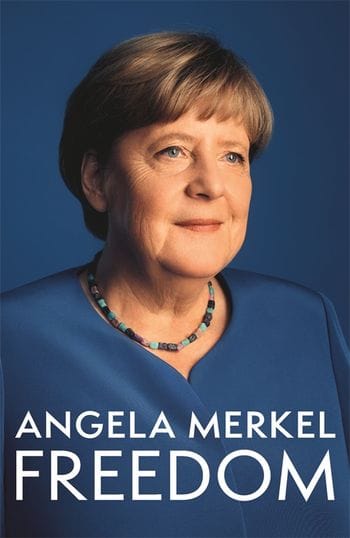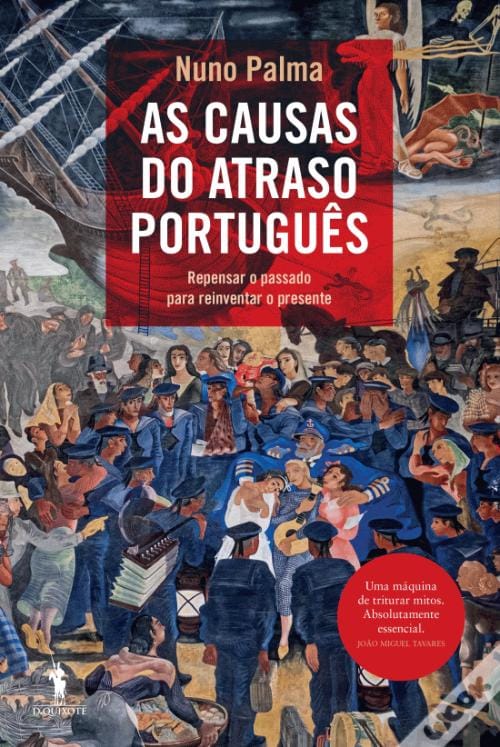By Angela Merkel (2024)
Pages: 720 , Final verdict: Great-read
Angela Merkel is the longest-serving leader of a democratic nation in the 21st century, holding office for 16 years, from 2005 to 2021. In Freedom, her memoir, she reflects on her journey from an unlikely political outsider to one of the most influential leaders in modern European history.
Born in East Germany (GDR), Merkel’s early life was shaped by a world behind the Iron Curtain. She trained as a physicist, and spent the first years after her PhD working as a research scientist at the Central Institute for Physical Chemistry, a career far removed from politics, but the fall of the Berlin Wall in 1989 changed everything. Merkel found herself swept up in the political enthusiasm joining the Democratic Awakening party, which quickly merged into the Christian Democratic Union (CDU). What followed was an astonishing ascent: from political newcomer to Helmut Kohl’s protégé, and, after a party scandal forced Kohl’s departure, to the leader of the CDU.
She won the 2005 elections after Gerhard Schröder’s government collapsed, forced into a snap election he himself had triggered. A relative outsider in a party dominated by men, Merkel’s careful, strategic approach allowed her to emerge as the compromise candidate in a divided political landscape. The girl from the GRD was the chancellor of Germany.
The bulk of Freedom is dedicated to her time as chancellor, but the book is not structured chronologically. Instead, Merkel organizes her reflections thematically, making it harder to trace the clear arc of her leadership. Each topic—whether the 2008 financial crisis, the Euro crisis, the 2015 refugee crisis, or her diplomatic strategies with China and Russia—is covered in short, concise chapters, often spanning years in just a few pages.
Merkel was unwavering pluralist, and avid defender of European unity, and believer in globalization. She played a central role in stabilizing the Eurozone after the 2008 crash, leading negotiations that culminated in the bailout in Greece and Portugal. In 2015, she made one of the boldest decisions, opening Germany’s doors to hundreds of thousands of migrants when much of Europe was turning them away. The same internationalist outlook guided her foresight in developing robust Germany-China trade relations, which saw German exports to China skyrocket from $26 billion in 2005 to $124 billion by 2021. These decisions cemented her reputation as a leader who prioritized cooperation over isolationism.
The book does a great job giving you a sense of her time in office. She's often very detailed on her travel schedule, meeting agendas and who-called-who-to-say-what insider stories. In one chapter, she literally dedicated several pages to list out the dozens of organizations that the chancellor would regularly engage with.
Yet, for all her strengths as a crisis manager, Merkel largely avoids deep introspection in Freedom. She reflects on small moments—things she wishes she had phrased differently in press conferences—but avoids confronting some of her most consequential missteps. Most strikingly to me, she stands by two of her most controversial decisions: shutting down Germany’s nuclear power plants and supporting the Nord Stream 2 pipeline.
The nuclear phase-out, accelerated after the Fukushima disaster in 2011, left Germany dependent on alternative energy sources. With a push for carbon reduction and high costs for liquefied natural gas, Russian gas became the most viable option. That decision led directly to the Nord Stream 2 project—a pipeline announced in 2015, just a year after Russia’s annexation of Crimea, at a time when the West was already imposing sanctions on Moscow and it was clear that increasing its energy dependence on Russia was a miscalculation. The pipeline strengthened Germany’s energy ties with Russia, despite opposition from Ukraine, the Baltic states, and the U.S. In retrospect, these choices contributed to Europe’s energy vulnerability in the 2020s, a fact that makes Merkel’s lack of self-criticism in Freedom particularly inexcusable.
Bottom Line
For Europeans in their 30s, Merkel’s chancellorship likely defined the backdrop of their intellectual and political formation. The Euro crisis, the bailouts, the Syrian war and refugee crisis, Russia’s aggression, the excitement of the Obama years—through it all, Merkel was there, a constant force of stability. Freedom offers a compelling, nostalgic journey through these defining moments of recent history. But her legacy remains deeply divisive: the pragmatic globalist who held Europe together stands in sharp contrast to the leader whose energy policies left the continent exposed to geopolitical risks.
It’s been just four years since Merkel left office, yet the impact of her decisions continues to shape Europe’s future. Freedom is not just a memoir—it’s a window into the last two decades of European politics, told through the eyes of the woman who stood at its center.
Further learning



